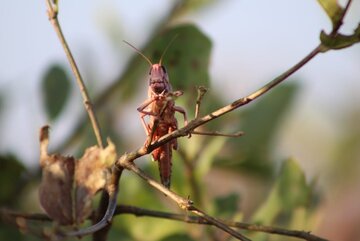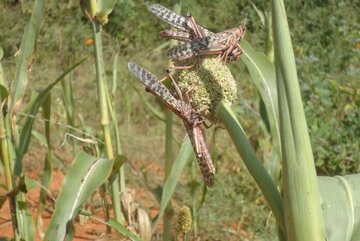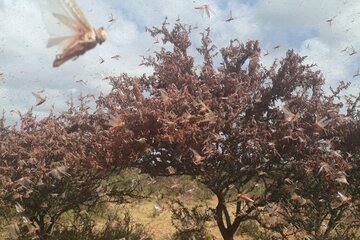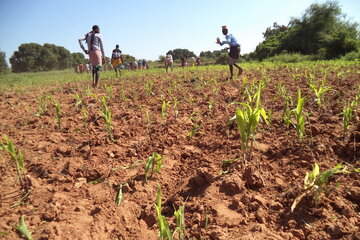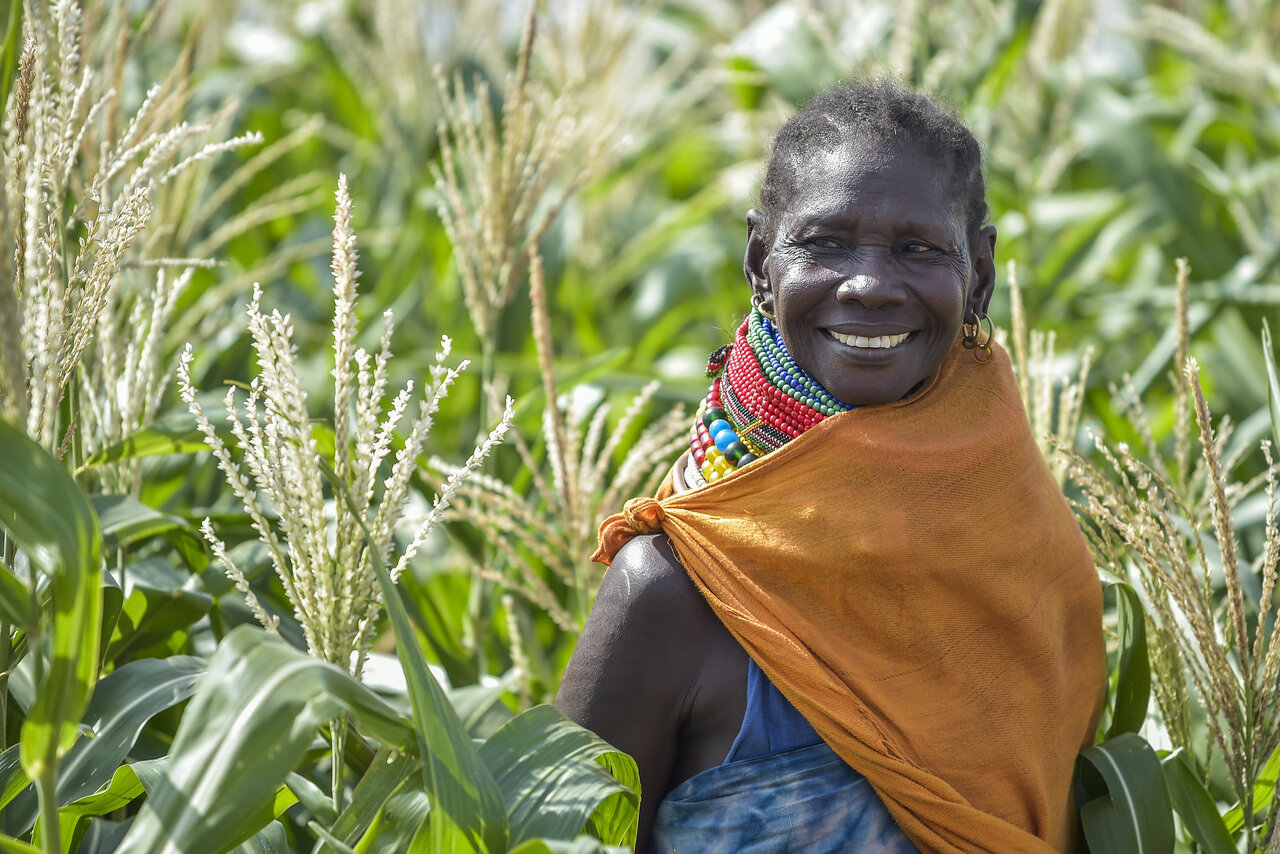Locusts in Kenya: Johanniter Provides 200,000 Euro for Emergency Aid
Berlin / Nairobi, 12 February 2020
"This is an unprecedented situation we are facing," says Mohamoud Duale, executive director of our partner organisation RACIDA in northern Kenya. Here, Johanniter and RACIDA are currently supporting the population that was affected by severe flooding at the end of 2019.
The communities had just recovered from a severe drought when floods drowned a large part of their livestock. Now they are witnessing the destruction of crops and pasture by the desert locusts.
The communities are in risk of losing their entire livelihood.
Johanniter therefore distributes food vouchers to affected families in the border region between Ethiopia and northern Kenya. With these vouchers, the people can buy food at local markets to compensate their loss. The additional 200,000 euros allow that aid measures are being extended.
Enormous swarms of locusts gathered in Kenya as a result of the severe flooding. The largest swarm measured so far covers an area of 2,400 square kilometres. A single square kilometre of the voracious insects can in one day destroy the amount of food that may sustain 35,000 people for a day.
We must act, otherwise a severe famine is imminent in the next few months.
According to the United Nations, the number of locusts may multiply in the coming weeks because they have laid eggs. The affected countries are trying to contain the plague by using pesticides, among other things.
In addition to Kenya, there is also a risk of locust swarms in southern Sudan and Uganda. Johanniter is conducting projects in both countries to fight malnutrition and to improve food security. The teams in both countries are in close contact with the responsible authorities and the United Nations.
